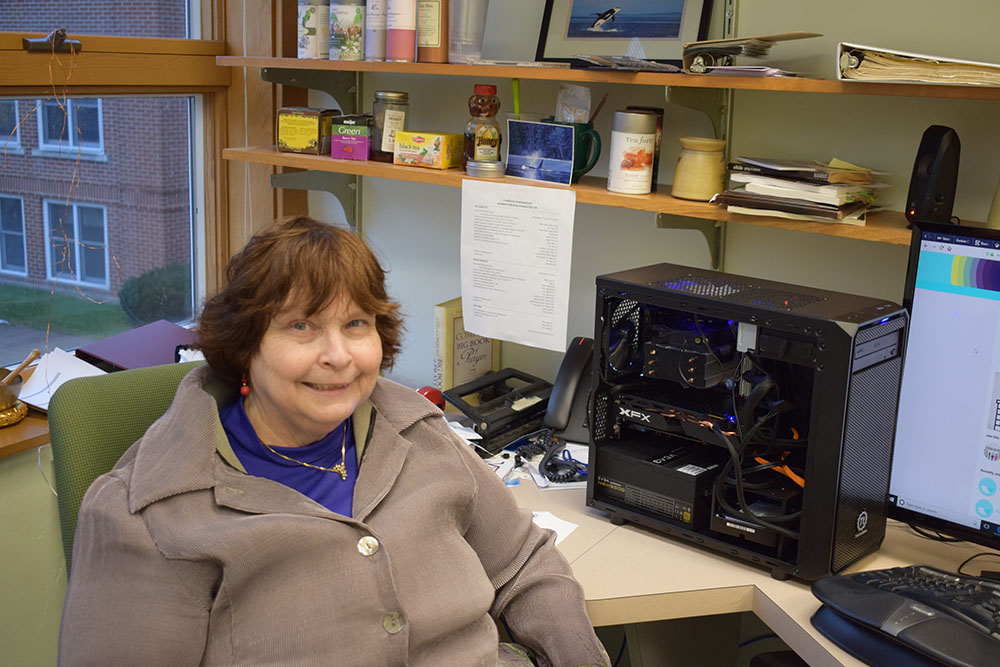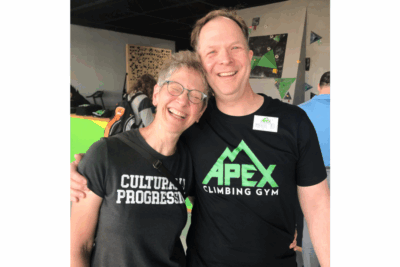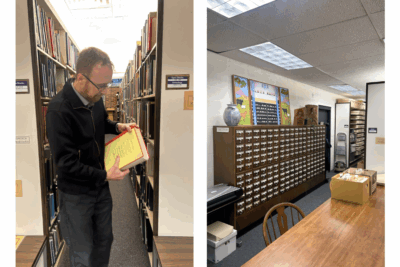Jeanette Shown, associate professor of computer science and information technology, will tell you that anyone can build their own computer.
That’s exactly what she did.As a matter of fact, Shown has been building computers for a long time now. She even built her own telescope at the age of 11.
But why build your own computer?
“I think someone in the computer science department should have a state of the art computer,” Shown said. “The nice thing about building your own computer is you know exactly what’s on it and you can [use] the software you want.”
Her computer now sits on her desk next to her 4K resolution screen. She uses it for her academic work, her research, and every once in a while for gaming.
But the building process wasn’t the fastest or cheapest.
“I went into price shock when I built this [computer] because back when I was in graduate school I [would] build my own systems and I could get them for under 200 dollars, and this one I brought in thankfully under a thousand… [but] it’s a lot more powerful,” Shown said.
So you’re building the computer; what’s the thinking process?
“Well the first thing is I get worried about breaking things. I remember to be careful… I get all the system menus out, I get other instructions that I can find online and then I just get organized to start doing it,” Shown said.
Building a computer can be a time consuming process, and for Shown it took longer because she was determined to
find parts on sale and not spend over 1,000 dollars.
The most difficult aspect of building the computer for Shown was, “squeezing everything in because [I wanted] to do a more compressed motherboard.”
She even had the occasional help from her students.
In addition to building her own computer, Shown develops software and hardware for visually impaired people.
“My philosophy is human-centered computing,” Shown said. “That’s what computers are for, they’re there to
help us do things.”
She values technology and doesn’t believe we should fear it taking our jobs away.
On the contrary, she believes that having a symbiotic relationship with computers is very important.
“The ethical thing to do [with computers] is to have them support what we do for a
living,” said Shown.
“We’re moving from one paradigm to another… technology in and of itself is neutral, it’s what we choose to do with it that makes a difference.”
Shown loves what she does and always knew that computer science was her calling. Still, being a woman can be a challenge in this field.
“I hate to say it… when you’re a woman it’s just harder. Even though a woman brings a different aspect to a job, a different culture to a job, we [still] have to be exactly like a guy. I don’t want to do that,” she said.
A big problem she sees is that, “we’re still dealing with a mainly male workforce.”
As a professor at Goshen College, Shown enjoys working with students and solving puzzles. For her, every problem is a puzzle. She wishes for the number of faculty in her department to grow as she is the only computer science professor.
She likes to use project-based learning, self-discovery and cooperative student group environments.
“I believe the people learn best by doing… I like people to work in groups together because when you leave this college you’re going to work in a team. Even if you’re working remotely you’re still [going to be] working in a team,” Shown said.
Her biggest advice to students is to “stay with your passion…always nurture yourself” and find support in your friends.



